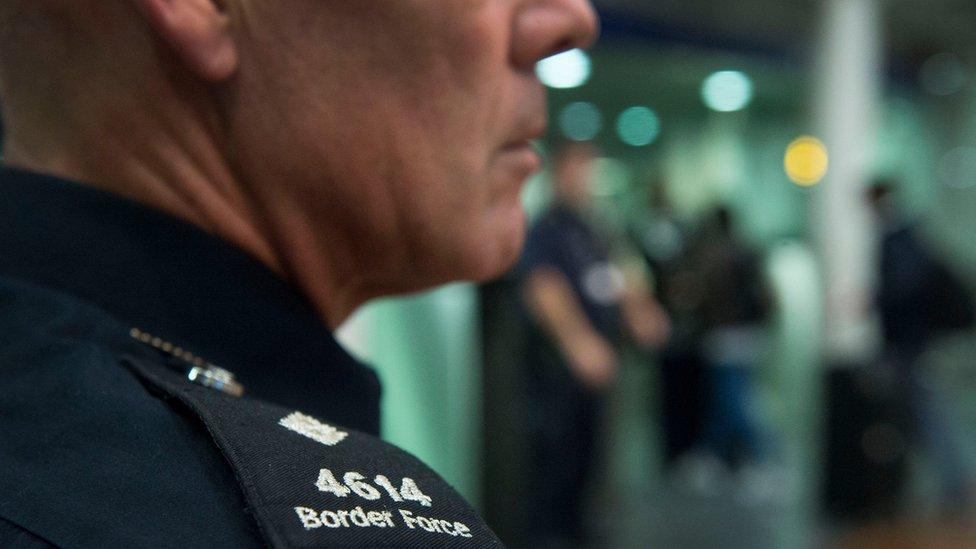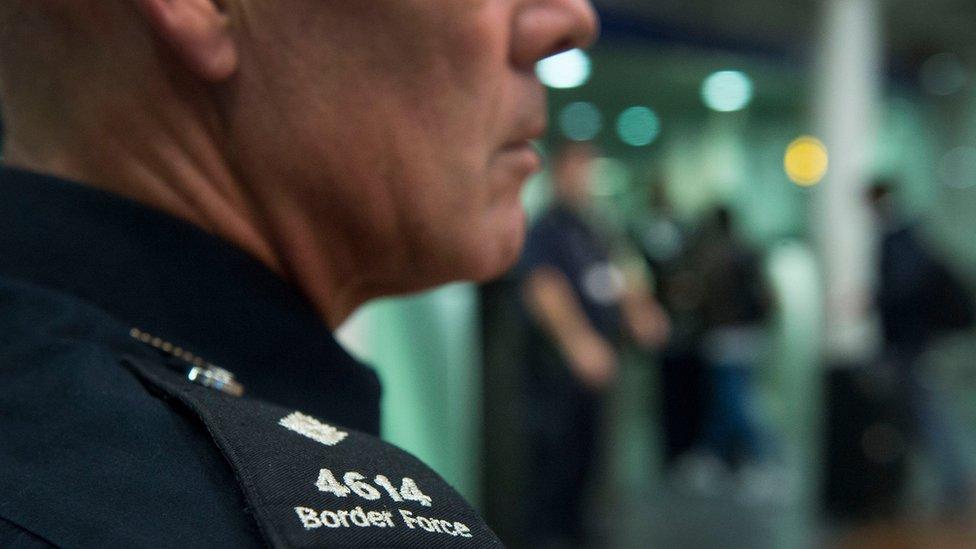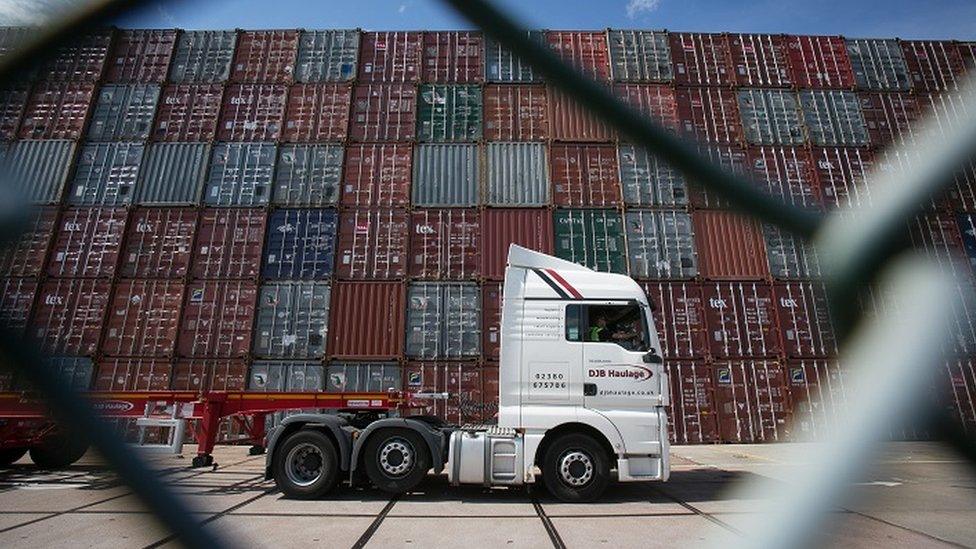Brexit: Extra customs checks at ports could take place 'inland'
- Published

New customs checkpoints may need to be built "inland" at British ports to handle the increased workload after Brexit, a senior official has said.
Karen Wheeler said new infrastructure would be needed to "facilitate" customs controls and it would be up to ports to decide where to locate them.
But space was tight at some ports so they might have be inland, she added.
Labour's Meg Hillier said this "revelation" would be alarming news for cash-strapped councils in port towns.
Ministers say they do not want to see major changes to the UK's customs or immigration procedures in the immediate aftermath of the UK's exit - scheduled for 29 March 2019.
The UK is expected to leave the single market and customs union, but existing free movement rules could continue, in practice, as part of any transition agreement.
'Not realistic'
The government also hopes to negotiate a bespoke customs deal to ensure trade remains as frictionless as possible.
But critics have been warned of chaos if the UK and EU are not able to agree an overall Brexit deal, with queues of lorries at ports and even food shortages. They say millions will need to be spent to prepare ports for such an eventuality.
Ms Wheeler - director general of borders at Revenue and Customs - she did not anticipate immediate upheaval in the event of a "no deal" scenario.
But she suggested more physical checks would be required in the long-run and that new facilities would have to be built at British ports to accommodate them.
"The assumption is that there, at some point, will be a need for some additional physical infrastructure to enable customs controls.
"As much as possible, we would like it to be inland rather than at the port, particularly where ports are constrained," she told MPs on the public accounts committee.
"There would need to be a process of establishing and identifying new inland facilities..That is what the ports would need to look at, along with HMRC, to consider what type of location may be appropriate."
Asked whether the new facilities would be in place in time for the UK's exit, she said this was "not realistic" but officials would have a clearer idea of what would be needed by next Spring.
Meg Hillier, the Labour MP who chairs the committee, said local councils, in places like Plymouth, Holyhead or Dover, were facing real financial challenges and would be potentially be alarmed at this "new revelation".
- Published16 November 2017

- Published14 November 2017
